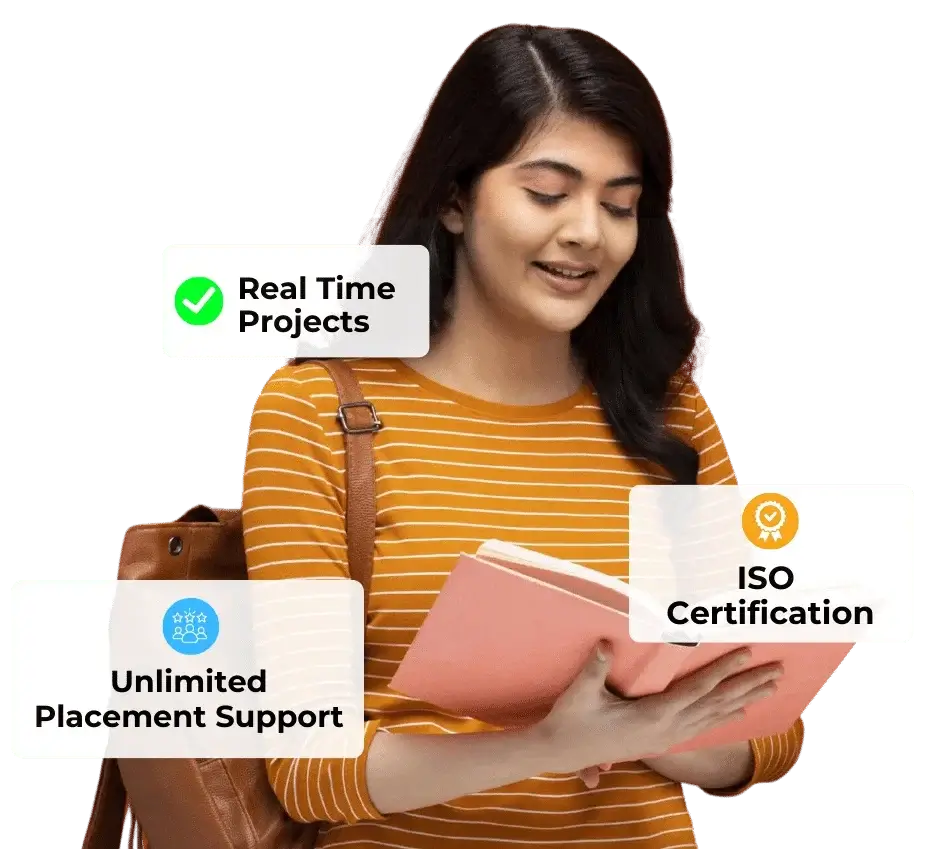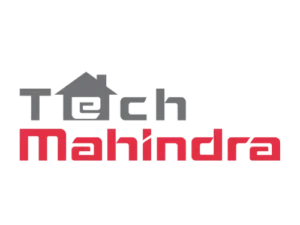Automation Testing with ISTQB Certification
Bestseller 4.7 30000+ Students
- Description

Error: Contact form not found.
Automation Testing with ISTQB Certification
Software Testing Course Outcome
- Develop skill in automation testing using industry-standard technologies such as Selenium and allowing for efficient test script writing and execution.
- Prepare and pass the ISTQB Certification exam to validate your skills and advance your career in software testing.
- Learn to integrate manual and automated testing approaches effectively, optimising testing processes for faster and more reliable software releases.
- Learn how to guarantee high-quality software solutions by following strict testing standards and best practices throughout the development lifecycle.
- Improve your ability to effectively detect and report errors, allowing for better communication between development and QA teams and faster issue resolution.
- Understand fundamental Java principles that allow you to create strong and efficient applications.
- Learn advanced skills for testing RESTful APIs using Rest Assured, such as request specification, response validation, and error handling.
- Implement the industry-standard testing methods covered in the course to ensure high-quality software products and an improved user experience.
- Develop the ability to successfully identify and report weaknesses allowing for timely engagement with development teams to resolve issues.
Automation Testing Tools





ISTQB Course Features
- In depth Curriculum
- Expert Instructors
- Interactive Learning
- Weekly Tests
- Feedback and Assessment
- Real time Projects
- Continuous Support
- ISO Certification
- Mock Interview
- Unlimited Placement Support
About Automation Course Syllabus
Core Java and Essentials
Installing Java and Installation of Eclipse
What are Tokens?
What are its Advantages?
How Java Internally works?
How to run first program?
How to store diffrerent datatypes in java?
Variables, initilization and utilization?
local,global and final variables?
DataType,its size, how to calculate size
What is public static void main(Main Method)
How methods can be created in Java
Methods
Static methods
Non static methods
Constructor
Constructor overloading
Java condition/Comparison Operators
If else statement
if else if
nested If else
Operators
Logical Operators
Methods Overloading
For loop-increment
For loop-decrement
For loop to print something
While loop
Inheritance
Single level inheritance
Multilevel inheritance
Multiple level inheritance
Diamond Problem
Hierarchical level inheritance
Hybrid level inheritance
Method Overriding
Super keyword
super calling statement parametrized
Super calling for non parametrized
Java Math class
Switch case
static initialization block and IIB
String function
String functions problems
Return Type
Math Functions
this calling statement
this calling statements vs super calling statements
super keyword vs this keyword
Understanding how to access methods from different class
Access Specifier for methods
Access Specifier for class
Access Specifier for variables
Advance Java Concepts
String
String functions and its uses,
String builder,
String Buffer
Array
Array Advantages
Array program
Array program fetching values with looping concepts
Some interview related programs on Array
Astract Class
Concrete Class
Abstract methods vs Concrete Methods
How relation will take place between Concree Class and Abstarct Class
Some real time problems on Abstarct class and Concrete class
Interface
Interface methods
Understanding inheritance between Absact class ,Concreate class and Interface
Some real time problems on Interface,Abstarct class and Concrete class
Achieving multiple level inheritance using interface 0.5
Java polymorphism
-compile time polymorphism
-run time polymorphism
Collection concepts
Array list
LinkedList
VectorList
Hashset
Linkedhashset
Treeset
Priority Queue
Important Concepts in Java
What is Object oriented programming language?
Which languages are called as OOPS?
Which languages are not OOPS?
Encapsulation
finally
throw
Throws
Primitive Type Casting
Class Type Casting
Continue Keyword
For Each Loop (Enhanced For Loop )
Selenium – Introduction and Launching Browsers
Web Driver Architecture
Selenium Components and Installing Web Driver
Launching different Firefox, Chrome,IE
Creating your first Script in WebDriver
Launching some script in Firefox
Launching some script in Chrome
Finding Elements using Locators
Locators – Types of Locators and Example
1) ID
2) Name
3) ClassName
4) TagName
5) Css
6) Xpath
7) LinkText
8) Partial LinkText
What is Xpath
When to Use Xpath
Absolute Xpath and Relative Xpath – Examples and Advantages
CSS Selectors – Advantages and Difference with Xpath
Automating Web Element Operations
Browser
Text Box, List Box,Links ,Radio Button ,Calendars
Automating Links
Automating Dropdowns
How to handle Autosuggestion and click one
How to count total no of links on a page using webdriver
How to count total no of links on a page using webdriver and print them
Fileupload pop up
How to work on dropdown?
How to handle java script pop up?
Handing hoverover
How to Perform double click on the link without using click method
How to Perform click on the link without suisng click method
Count the no of options in a dropdown
Robot Class
How to enter url without get function
How to do right click on any element
How to takeyour mouse to any location
Program to find out the Future Date/Past Date/Current Date
Handling Alerts ,Frames and Multiple Windows
Handling Alert and Types of Alert
Handling Frames and Types of Frames
Alert Functions-accept ,dismiss and getText
Window Handle – Definations and Syntax
Difference between Window Handle and Windowhandles
Switching between Windows and Handling Elements present in Diff. Windows
Switching between Windows and Handling Elements present in same browser
Synchronization in Automation scripts
Wait types -Implicit wait , WebDriver Wait
Thread.Sleep and Difference with wait methods
Data Driven Testing
DDT-Data Driven Testing
Configuring Apache POI Jars
How to handle excel sheet
How to craete test datas in excel sheet
how to fetch values from excel sheet if its numeric
NumberToTextConverter class
Page Object Model(POM)
What is POM?
Why are we moving to POM?
Creation of POM file in Testng
Minimizing the code with POM
Increasing the code reusability with the concept of POM
TestNg – Overview
Advantages of TestNg
Installing TestNG in Eclipse
TestNG Annotations
TestNG Assertions
Prioritizing Test Cases
TestNG Parameters
1) Priority
2) Enabled
3) InvocationCount
Cross browser Testing
Parallel Testing with TestNg
Grouping the Test Cases based on what kind of scenerio it is
TestNg Reports
dependsOnMethods-Testng Depenedency
DataProvider Annotation
TestNG Listeners
IRetryAnalyzer interface in testng
Reporter.log
timeOut parameter of TestNg
Parameters Annotaion in TestNg
what is difference between java project and maven project
Broken frames in website
Jenkins
Installation
How to create your first job in Jenkins?
How to run your local java programs in jenkins?
How to Inegrate your Jenkins with GitHub
GIT HUB concepts
Creating GIT HUB Account
Basic GIT HUB commands
Configuring and Interface Overview of GITHUB
- Students or recent graduates
- Quality assurance professionals who want to specialize in Software testing
- Individuals who are looking to transition into a career in software testing
- Software developers who want to expand their skill set and learn more about Software testing
- Project managers Non IT person planning to move to IT
- Experienced Manual Tester Work from Home Aspirants



















The ISTQB (International Software Testing Qualifications Board) Certification is a globally recognized certification for software testers. It certifies that an individual possesses the necessary skills and knowledge to perform software testing effectively. The certification is available at multiple levels, including Foundation, Advanced, and Expert, However, Foundation level certification is mostly required by the companies.
The ISTQB Certification is important because it points to your proficiency in software testing, which increases your value to companies. It gives testers a shared language, promotes standardised procedures, and improves your capacity to manage challenging testing situations.
Answer: The Automation + ISTQB Certification Course covers essential topics in both test automation and ISTQB certification. This includes fundamentals of software testing, automation frameworks, scripting languages, test design techniques, and practical applications of automated testing tools. Additionally, the course prepares you for the ISTQB Foundation Level exam, and gives you an edge over other candidates.
The duration of the Automation + ISTQB Certification Course is 6 months, covering the fundamentals of Automation Testing and preparing you to become an ISTQB Certified Professional. in the field of Software Testing. Additionally, you will gain practical experience through real-time projects during this course.
Although there are not any high standards to sign up for the course, having a basic understanding of software development and testing principles is beneficial. Some familiarity with programming languages used in automation (such as Java or Python) is also advantageous.
To prepare for the ISTQB Foundation Level exam, it is recommended to study the ISTQB syllabus, use study guides, and take practice exams as provided by the trainer during the course tenure. Enrolling in a structured course, such as the Automation + ISTQB Certification Course, can also provide comprehensive preparation through lectures, hands-on exercises, and expert guidance.
Combining automation skills with ISTQB Certification provides a competitive edge in the job market. Automation skills enable you to streamline testing processes, increase efficiency, and reduce manual effort. When paired with ISTQB Certification, it demonstrates a well-rounded expertise in both theoretical and practical aspects of software testing, making you a valuable asset to any organisation.
The GroTechMinds ISTQB Certification Course as charged by the ISTQB varies between INR 6,000 to INR 7,000.
We offer unlimited job support to our students, facilitating their placement in top MNC companies. Additionally, we provide assistance with mock interviews to help them succeed in real-time interviews.
Yes, a number of approved test providers offer online options for taking the ISTQB Certification exam. This allows you to take the exam from the comfort of your home or office, giving you flexibility and convenience.







